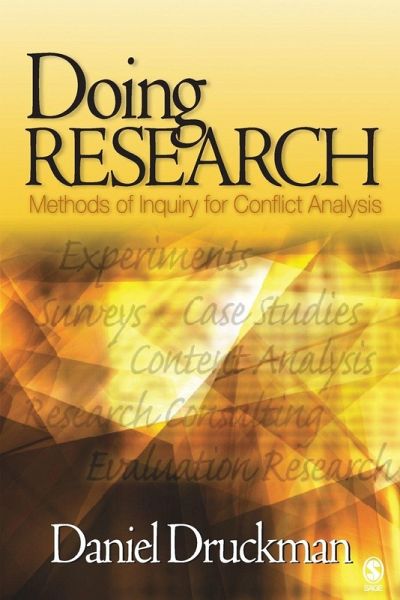
Doing Research
Methods of Inquiry for Conflict Analysis

PAYBACK Punkte
74 °P sammeln!
An award-winning book, Doing Research is a must read. Designed for students across a variety of social science disciplines, it is the first research methods text devoted to conflict analysis and resolution. It begins with a discussion of the philosophical foundations for doing research, providing guidelines on how to develop research questions and how these questions can be addressed with various methodologies. The book presents a wide-ranging treatment of both quantitative and qualitative approaches to the design and analysis of problems of conflict.




